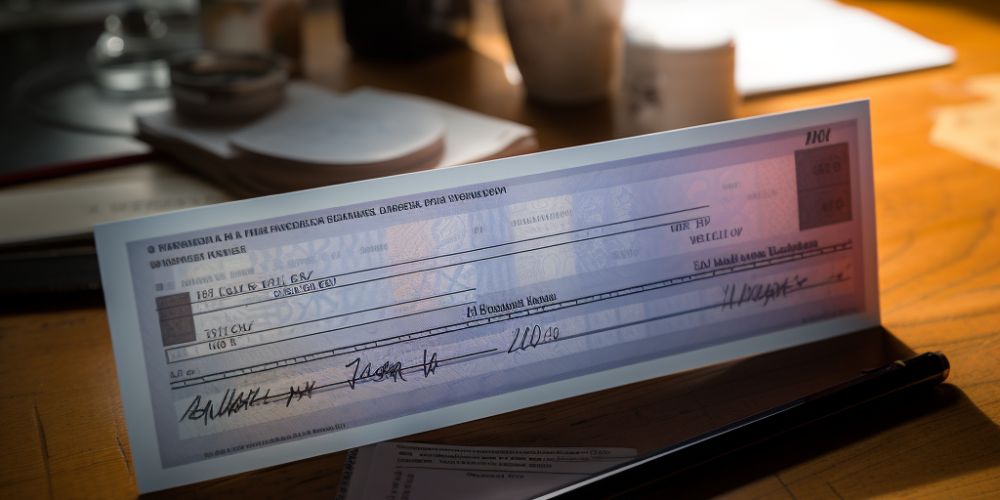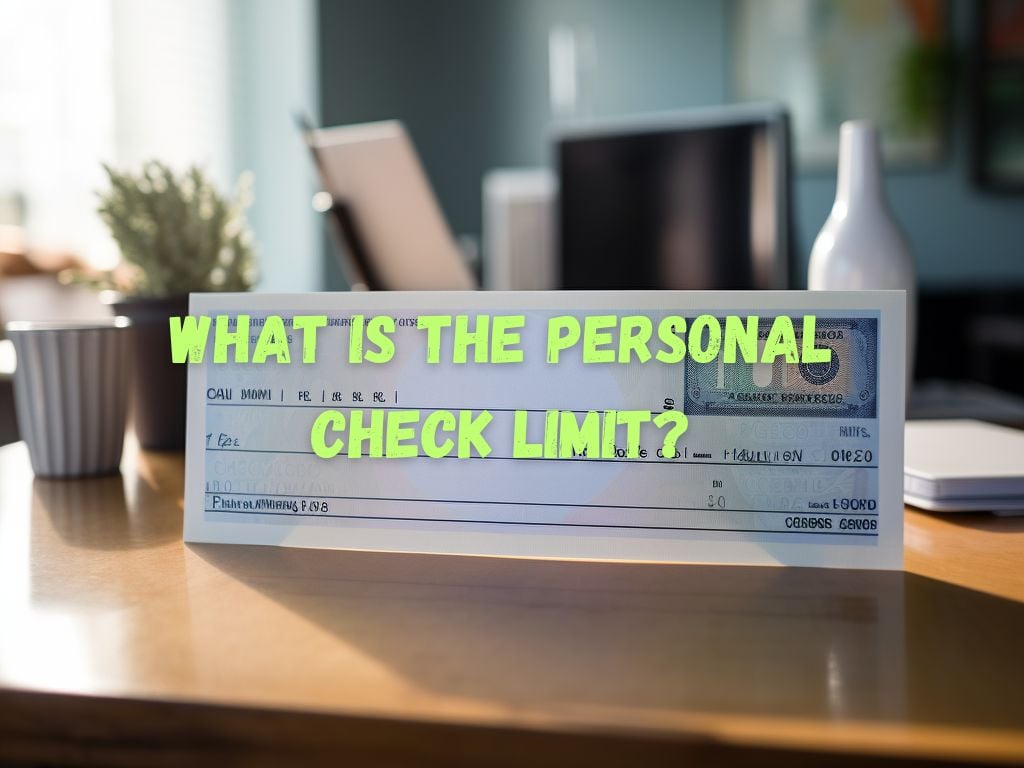When it comes to personal checks, many individuals wonder if there is a maximum amount they can write on a check.
Understanding personal check limits is essential for effective money management and ensuring that your transactions proceed smoothly.
In this article, we will delve into the factors that affect personal check limits and address some frequently asked questions regarding this topic.
Does a Personal Check Have a Limit?
There is a common misconception that personal checks have a predetermined limit.
However, unlike credit cards or debit cards, personal checks do not have an inherent maximum amount that they can be written for.
The key factor that determines whether a personal check can be cashed or cleared is the availability of funds in the account from which the check is drawn.

Factors Affecting Personal Check Limits
While there is no fixed limit on personal checks, several factors can influence the maximum amount you can write on a check. These factors include:
Account Balance
One of the primary factors affecting personal check limits is the account balance of the individual writing the check.
A personal check acts as a promise to pay, drawing funds directly from the account holder’s personal checking account.
Therefore, the availability of funds to cover the check amount is critical.
When presenting a personal check for payment, the bank or financial institution will typically verify the availability of funds in the account.
If there are sufficient funds, the check is likely to clear without any issues. However, attempting to write a check for an amount that exceeds the account balance can result in the check bouncing or causing overdraft fees.
Managing your account balance and keeping a clear record of funds is essential for maximizing your check amounts.
Regularly monitoring your account and practicing responsible financial management can help you avoid any complications with personal checks.
Banking Policies
Each bank or financial institution may have its own policies regarding personal check limits.
While some banks may impose stricter check limits, others may allow their customers more flexibility.
It is essential to be aware of your specific bank’s policies to avoid any surprises when writing large checks.
Most banks do not have a specific check limit, but may place a hold on checks that exceed a certain amount as a precautionary measure.
Maintaining a positive relationship with your bank can also influence your check limits. Banks may be more willing to accommodate higher check amounts for customers they trust and have a long-standing relationship with.
Identity Verification and Security Measures
Identity verification plays a vital role in personal check limits.
Banks often have strict protocols in place to ensure that the account holder’s identity is verified before allowing large check transactions. This verification process helps prevent fraud and ensures the security of both the account holder and the bank.
Providing valid identification documents, such as a driver’s license or passport, when writing large check amounts may be required by the bank. This verification step is performed to protect against unauthorized check usage and add an extra layer of security to the transaction.
Other Factors
Other factors that can influence personal check limits include the currency exchange rate, third-party intermediaries, and country-specific banking laws. Be aware of any hidden fees that the bank may charge as it can affect your ability to write a personal check.
Furthermore, the type of personal check you write, such as a certified or cashier’s check, can also impact the limit associated with that check.
Exercise caution and ensure you have sufficient funds to cover any large checks you write.

Frequently Asked Questions (FAQs)
Q: Can you write a personal check for any amount without being taxed?
A: Writing a personal check does not directly result in taxes. Taxes are determined by the purpose of the transaction or the recipient’s tax obligations, rather than the act of writing a check itself.
Q: What happens when you write a check over $10,000?
A: Writing a check over $10,000 may trigger additional scrutiny from banks due to anti-money laundering regulations. Banks are required to report transactions over this threshold to the Financial Crimes Enforcement Network (FinCEN).
Q: Is there a time limit on using personal checks?
A: Personal checks generally do not have an expiration date. However, the recommendation is to deposit personal checks within six months to a year from the date they are issued to ensure that they do not become stale-dated.
Conclusion
Understanding personal check limits is crucial for responsible money management.
While personal checks do not have a fixed limit like credit or debit cards, factors such as account balance, banking policies, identity verification, and security measures can influence the maximum amount you can write on a check.
It is essential to be aware of these factors, maintain a positive relationship with your bank, and manage your funds responsibly to avoid complications with personal checks.
Remember to consult your specific bank for the most accurate and up-to-date information regarding personal check limits.


 Tags:
Tags:










